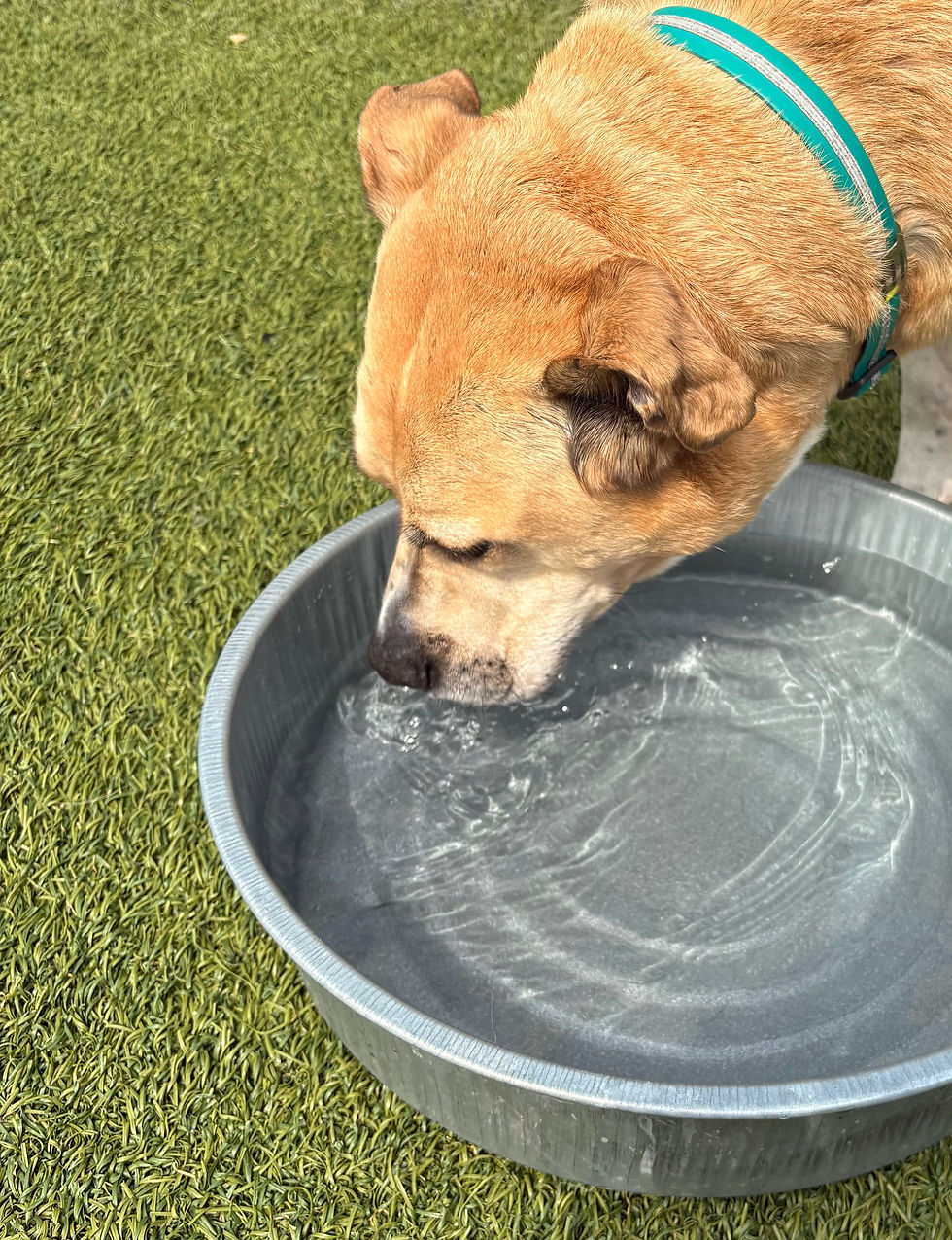How Climate Change Impacts Health and Wellbeing
- marmissionorg
- Sep 4, 2025
- 3 min read
Updated: Dec 18, 2025
By Mar's Mission Editorial Team, with assistance from AI tools
Climate change is not just a concern for humans; it is increasingly affecting our furry friends. When temperatures rise and weather patterns change, the health and wellbeing of companion animals like dogs, cats, and other animals can be at risk. Understanding these impacts help companion animal guardians make informed decisions to safeguard their companions.
Rising Temperatures and Heat Stress
Higher temperatures are one of the most direct consequences of climate change. Companion animals, particularly breeds with thick fur or brachycephalic types like Bulldogs and Persians, are especially prone to heat stress, according to The Kennel Club.
Heat stress can lead to severe health complications, such as heatstroke, which can be fatal without quick intervention, says Pet MD.
On days when temperatures soar, companion animal guardians should ensure companion animals have ample access to shade, fresh water, and a cool atmosphere.
For instance, consider scheduling walks early in the morning or later in the evening when temperatures are cooler. Be on the lookout for warning signs, such as excessive panting, drooling, or sluggishness.
"During a heat crisis, the goal is always to decrease the dog’s body temperature to 103° F in the first 10-15 minutes. Once 103° F is reached, you must stop the cooling process because the body temperature will continue to decrease and can plummet dangerously low if you continue to cool the dog for too long," says American Red Cross. Even if you successfully cool companion animals down to 103° F in the first 10-15 minutes, you must take the dog to a veterinarian as soon as possible because consequences of heat stroke will not show up for hours or even days. Potential problems include abnormal heart rhythms, kidney failure, neurological problems and respiratory arrest," they add.

Increased Allergens and Respiratory Issues
Hot and humid climates can lead to higher levels of allergens like pollen and mold, worsening respiratory problems.
Companion animals can suffer from reactions similar to humans, including sneezing, itching, and skin irritations, says Express Vets in Georgia. During high pollen seasons, guardians must watch for allergy symptoms.
Consulting your licensed veterinarian can provide much-needed relief for you and companion animals.
Changes in Wildlife and Parasite Populations
As the climate shifts, so does the distribution of wildlife and parasites.
"Warming temperatures don’t just affect the habitats where Ixodes ticks live and thrive; climate change has also changed the habitats of host species that ticks depend on to survive," according to Pfizer.
"Warmer temperatures and milder winters allow ticks to remain active longer and expand into new territories," reports Virginia Tech.
To protect companion animals, guardians should stay informed about local parasite risks and ensure companion animals receive regular check-ups and preventive medications.
Water Quality and Availability
Climate change also affects the quality and availability of water, which is vital for companion animals' health. Droughts and heavy storms can contaminate water sources, increasing health risks for companion animals that drink from outdoor bodies.
To ensure companion animals have access to safe drinking water, guardians should provide clean, fresh water at all times. Being aware of local water quality reports can help guardians make better decisions. For example, if a local storm has contaminated waterways, guardians should be cautious about allowing companion animals to drink from them.
Final Thoughts
The effects of climate change on companion animals are considerable and varied. Heat stress, rising allergens, and changing parasite populations are just a few challenges guardians face.
By staying informed and taking proactive steps — like providing shade, monitoring water quality, and managing allergens — guardians can enhance companion animals' health and wellbeing in a changing climate. The bond we share with companion animals means we must prioritize their welfare in significant ways, especially as we face these evolving environmental challenges.
Mar’s Mission does not provide veterinary care or services. The information we share comes from reputable and trusted sources to help support the care of companion animals. For urgent or professional medical needs, please contact a licensed veterinarian immediately.




Comments